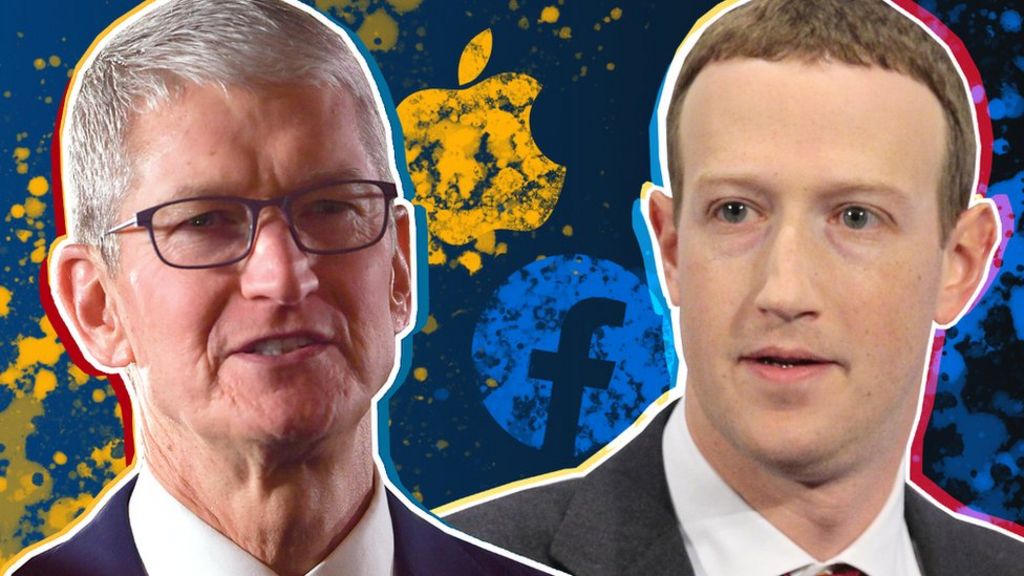It’s tough to pinpoint exactly where things with Facebook and Apple went wrong, but like so many relationships gone sour, the first signs of real trouble looked like petty sniping. In March 2018, Facebook Inc. was in the midst of a scandal involving political consulting firm Cambridge Analytica and was facing serious questions about its stewardship of its users’ personal data. A commentator on MSNBC asked Apple Inc Chief Executive Officer Tim Cook what he would do if he were in Facebook CEO Mark Zuckerberg’s shoes. “I wouldn’t be in this situation,” Cook said.
A week later, Zuckerberg implied Apple’s products were just for “rich people.” Then Apple showed off a feature to help phone users cut down on time spent inside apps. “If you see an app where you might want to be spending a little bit less time, you can set your own limit,” said an Apple executive, while Instagram’s app appeared on a large screen behind him.
Competition in Silicon Valley can be brutal, but for much of the past decade, Apple and Facebook have shared a mutually beneficial relationship, if not always a friendly one. Facebook relies on Apple’s iPhones to reach millions of users, and Apple needs Facebook’s wildly popular apps on its phones to keep people from going to competing platforms. Both companies have thrived since the iPhone’s release, and for the most part they haven’t made products that compete directly.
But Facebook and Apple find themselves on a collision course. Their competition on messaging has heated up for years. Facebook is focusing on products that are also on Apple’s road map, such as virtual and augmented reality headsets. “We increasingly see Apple as one of our biggest competitors,” Zuckerberg told analysts in January. “Apple has every incentive to use their dominant platform position to interfere with how our apps and other apps work, which they regularly do to preference their own.”
The feud has escalated rapidly over Apple’s forthcoming update to the software that powers its iPhones, which includes a requirement that developers get explicit permission to collect certain data and track users’ activity across apps and websites. Such a move could undermine the efficacy of Facebook’s targeted advertisements. In December, Facebook took out full-page ads in a trio of US newspapers saying it was “standing up to Apple for small businesses everywhere” by opposing the changes, which it describes as an abuse of market power. Facebook is considering filing an antitrust lawsuit against Apple, according to a person familiar with the company’s thinking.

